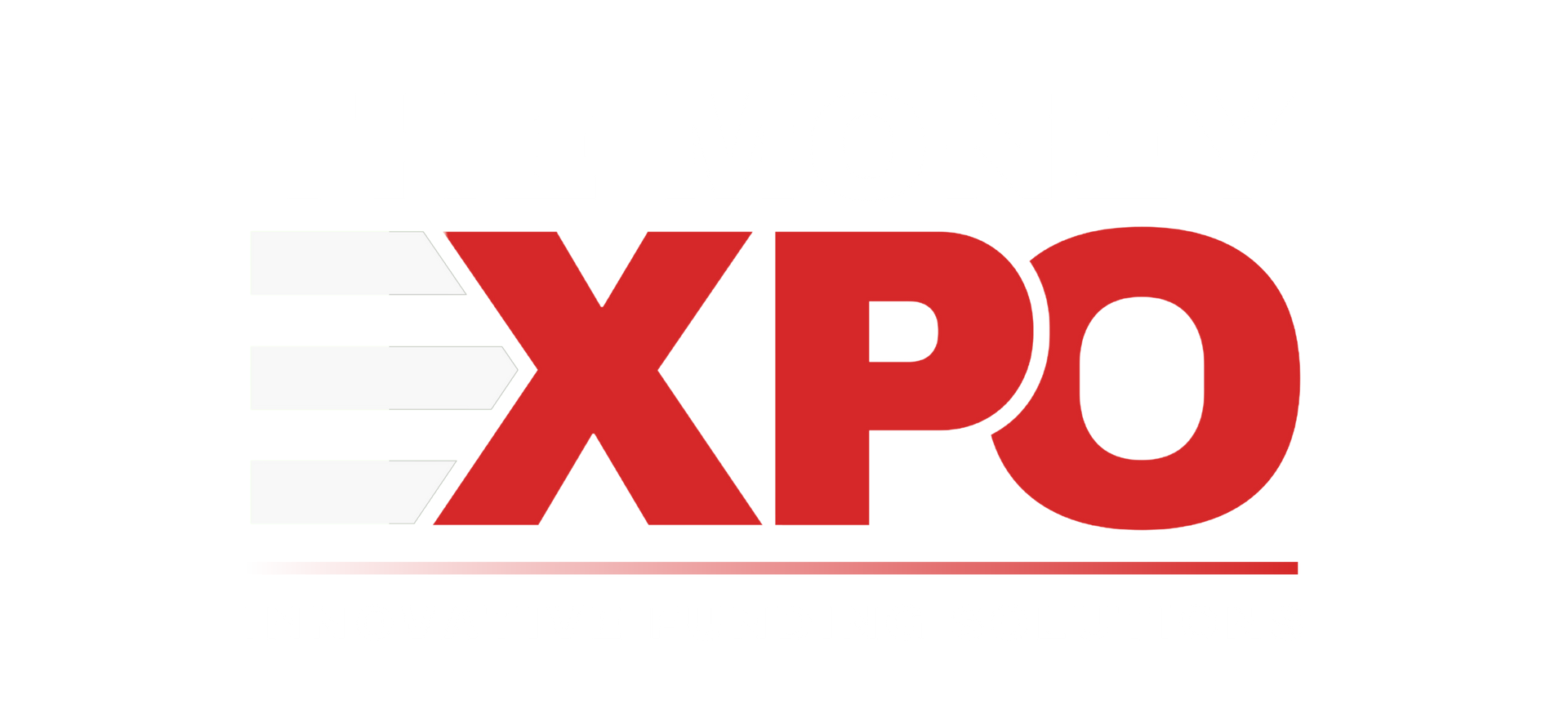Financial Literacy for Entrepreneurs: Resources and Tools from The Money Expo
Mastering the Money Side of Business: Tools, Strategies, and Insights from The Money Expo

Starting and scaling a business takes grit, passion, and vision—but to succeed long term, entrepreneurs also need something just as essential: financial literacy.
Understanding the money side of your business isn't just about knowing how to invoice a client or balance your bank account. It's about confidently making strategic decisions, avoiding costly mistakes, and building a venture that thrives even during economic ups and downs.
At The Money Expo, we bring together financial experts, funding partners, and business educators to help entrepreneurs like you sharpen their financial acumen. Whether you're just launching or looking to grow, mastering financial literacy is a non-negotiable skill—and this guide will give you a powerful head start.
What Is Financial Literacy (and Why It Matters for Entrepreneurs)?
Financial literacy is the ability to understand and manage personal and business finances effectively. It includes everything from basic budgeting to interpreting financial statements, forecasting cash flow, and evaluating risk.
For entrepreneurs, this knowledge translates into:
- Confident pricing and revenue planning
- Strategic use of capital and debt
- Smarter hiring and operational investments
- Faster growth with less waste
Without financial literacy, even the most promising businesses can fall victim to poor planning or unseen money leaks. With it, you gain the clarity to make smart, data-backed choices that keep your business moving forward.
Core Financial Concepts Every Entrepreneur Should Know
You don’t need to be a CPA, but there are certain key financial principles every business owner should understand:
1. Cash Flow vs. Profit
Many entrepreneurs mistake profit for cash flow. In reality, a business can be profitable on paper but run out of cash and fail. Understanding how money moves in and out of your business helps you manage expenses, plan for slow seasons, and avoid surprise shortages.
2. The Three Key Financial Statements
- Profit & Loss Statement (P&L): Shows revenue, costs, and profits over time.
- Balance Sheet: Summarizes assets, liabilities, and equity at a specific point.
- Cash Flow Statement: Tracks the actual movement of cash in and out.
Together, these statements offer a full view of your business’s financial health.
3. Break-Even Point
Knowing how much you need to earn to cover all your costs helps you set realistic sales goals and pricing strategies.
4. Gross Margin & Net Margin
These metrics help you understand how much profit you're actually keeping from each sale after costs.
5. Budgeting & Forecasting
Smart financial planning isn’t just looking backward—it’s about projecting ahead. Entrepreneurs should create monthly and quarterly forecasts to guide growth and spending decisions.
Why Entrepreneurs Struggle with Financial Literacy
Most business owners start because they love their product, skill, or service—not because they love spreadsheets. But financial blind spots are more common (and more damaging) than most people think.
Common challenges include:
- Lack of formal financial education
- Avoidance or anxiety around money
- Time constraints that push numbers to the back burner
- Over-reliance on accountants without understanding reports
This is why events like The Money Expo are critical. They help entrepreneurs shift from passive observers to proactive financial leaders.
Top Financial Tools for Business Owners (Many Featured at The Money Expo)
One of the best ways to improve financial literacy is by using the right tools. Here are some of the most powerful platforms and software solutions that simplify financial management for entrepreneurs:
1. QuickBooks or Xero
Bookkeeping software that helps you track income, expenses, and generate financial reports automatically.
2. Wave or FreshBooks
Affordable, beginner-friendly options for invoicing, expense tracking, and basic financial insights.
3. LivePlan
A planning and forecasting tool designed specifically for entrepreneurs, making it easier to model scenarios and build strategic budgets.
4. Gusto or ADP
Payroll services that help you manage employee compensation, taxes, and compliance.
5. Bench or Pilot
Bookkeeping services that combine software with real human support.
Many of these tools are demonstrated at The Money Expo, where you can ask questions, see demos, and compare features side-by-side.
Free and Low-Cost Financial Education Resources
You don’t need to spend a fortune to level up your financial skills. Here are some valuable platforms that offer courses, templates, and tutorials:
1. SCORE.org
Free business mentoring and financial planning templates.
2. SBA.gov
Educational tools and calculators for business owners.
3. Coursera and Udemy
Online courses on financial literacy, accounting, and business finance.
4. Your Local SBDC (Small Business Development Center)
Often offers free workshops and one-on-one consulting.
5. Podcasts and YouTube Channels
Look for shows hosted by financial professionals who break down complex topics in plain English.
Building a Financial Support Team
You don’t have to do everything alone. Financial literacy also means knowing when to ask for help—and who to turn to.
Key players include:
- Accountants: Tax prep, compliance, and insight into your financial statements.
- Bookkeepers: Day-to-day recordkeeping and categorizing transactions.
- CFOs or Fractional CFOs: Strategic financial guidance for larger decisions.
- Business Coaches: Help integrate financial goals with broader business strategy.
Events like The Money Expo are a great place to meet vetted professionals and build your financial dream team.
Real-World Stories: Financial Literacy in Action
Case Study 1: The Overwhelmed Founder
Maria started a popular catering business—but her pricing didn’t account for overhead or seasonal slowdowns. After attending a workshop at The Money Expo, she learned to read her P&L, adjusted her menu pricing, and built a six-month cash reserve that stabilized her business.
Case Study 2: The Scaling Tech Startup
Jordan was scaling a SaaS platform and relied entirely on investor cash without clear forecasts. After engaging with a CFO panel at The Money Expo, he adopted LivePlan, created revenue models, and extended his runway by 12 months with smarter cash flow management.
These stories aren’t unique—they’re the norm. Financial clarity empowers smarter growth.
The Emotional Side of Financial Literacy
Money isn’t just math—it’s emotional. Entrepreneurs often deal with:
- Imposter syndrome when they don’t understand the numbers
- Fear of facing financial realities
- Anxiety around debt or cash shortfalls
Improving your financial literacy builds confidence. It turns avoidance into empowerment. When you know where your money is going—and why—you feel more in control.
How The Money Expo Helps Entrepreneurs Thrive Financially
At The Money Expo, financial education is more than a side session—it’s a core mission. Through workshops, live demos, expert panels, and networking opportunities, we give entrepreneurs hands-on access to the knowledge and resources they need to grow stronger businesses.
At The Money Expo, you’ll find:
- Workshops on pricing, budgeting, and forecasting
- Live software demos to find the right tools for your business
- Q&A with financial advisors, CPAs, and funding experts
- Connections to financial institutions and lenders
- Real-world education that makes numbers feel less intimidating
Whether you're bootstrapping your first venture or scaling a multi-location brand, The Money Expo helps you think—and act—like a financially confident CEO.
Final Thoughts: Empower Your Business with Financial Literacy
Numbers tell the story of your business. The more fluently you speak their language, the more confidently you can lead, grow, and adapt.
Financial literacy is not a destination—it’s a muscle you build over time. And with resources like those found at The Money Expo, you don’t have to go it alone.
Show up. Ask questions. Get curious about your numbers. When you do, you’ll unlock not just financial stability—but the freedom and clarity that entrepreneurship is all about.












